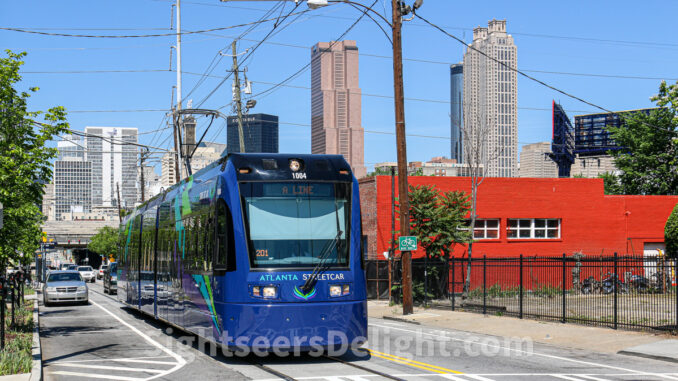
(The Center Square) — Atlanta is one of the worst cities for commuters in the country, according to a new analysis, confirming what many living in the area already know.
According to a review from Clever Real Estate, Atlanta was named the third-worst commuter city, edging out edged out Houston and Chicago. Georgia’s capital city ranked just behind Los Angeles, another notoriously vehicle-heavy commuting town.
The company used 13 metrics to rank the commuter-friendliness of the 50 most populous cities, Sam M. Huisache, a data writer at Clever Real Estate, told The Center Square. The top three highest-weighted factors are the average time spent in traffic measured in hours lost, the percentage of workers who work from home and their public transit score, a secondary data point from Walkscore.com.
“They should definitely invest in public transportation improvements, specifically, investing in a sustainable and comprehensive infrastructure for a train system,” Huisache said in an email. “I recognize that in many parts of the U.S., Americans are skeptical of big investments into trains, but by building quality systems, policymakers can almost prove to their residents that the decision was a sound one.
“Improving commuting has a variety of benefits, especially for taxpayers. Improving residents’ commutes can boost economic growth, reduce maintenance costs, increase property values, and enhance quality of life, resulting in long-term cost savings and improved tax revenues for taxpayers,” Huisache added.
However, when trying to mitigate commuters’ concerns, a policy hawk said managed lanes have the most bang for the buck from a taxpayer perspective.
“I do think the managed lanes are the most cost-effective way,” Baruch Feigenbaum, senior managing director of transportation policy at Reason Foundation, told The Center Square. “Part of the cost is directly paid for by the users in the form of tolls.
“When you’re building general-purpose roads, you don’t have that; you do have gas tax revenue, but the majority of gas tax revenue in Georgia is to support existing infrastructure for operations and maintenance; it’s not new capacity,” Feigenbaum added. “The managed lanes also provide transit. They provide express bus and bus rapid transit.”
The Metropolitan Atlanta Rapid Transit Authority is advancing BRT on corridors throughout the Atlanta area. The agency plans to build a BRT line on Georgia 400, connecting the existing North Springs rail station in Sandy Springs with the Windward Parkway Park and Ride lot in Alpharetta.
Transportation funding has permeated the conversation in local communities across the Peach State.
Barrow County leaders and their counterparts in the county’s six cities have agreed to divvy the proceeds of Transportation Special Purpose Local Option Sales Tax should voters approve it in November.
The five-year tax is expected to raise an estimated $130 million over five years. The bulk of the money — roughly $94.2 million — would go to Barrow County, while the county seat of Winder would receive roughly $18.6 million.
This article was published by The Center Square and is republished here with permission. Click here to view the original.




